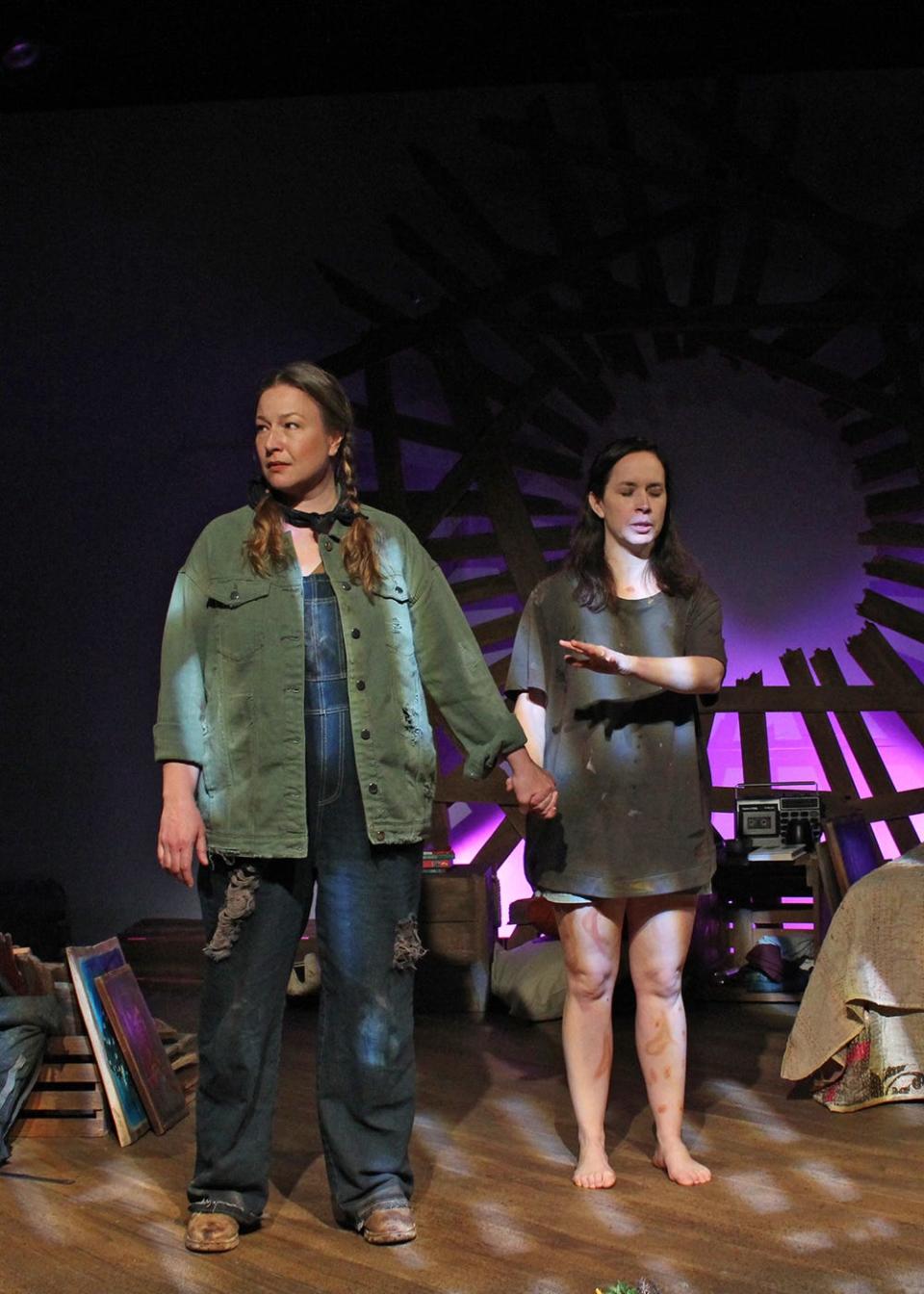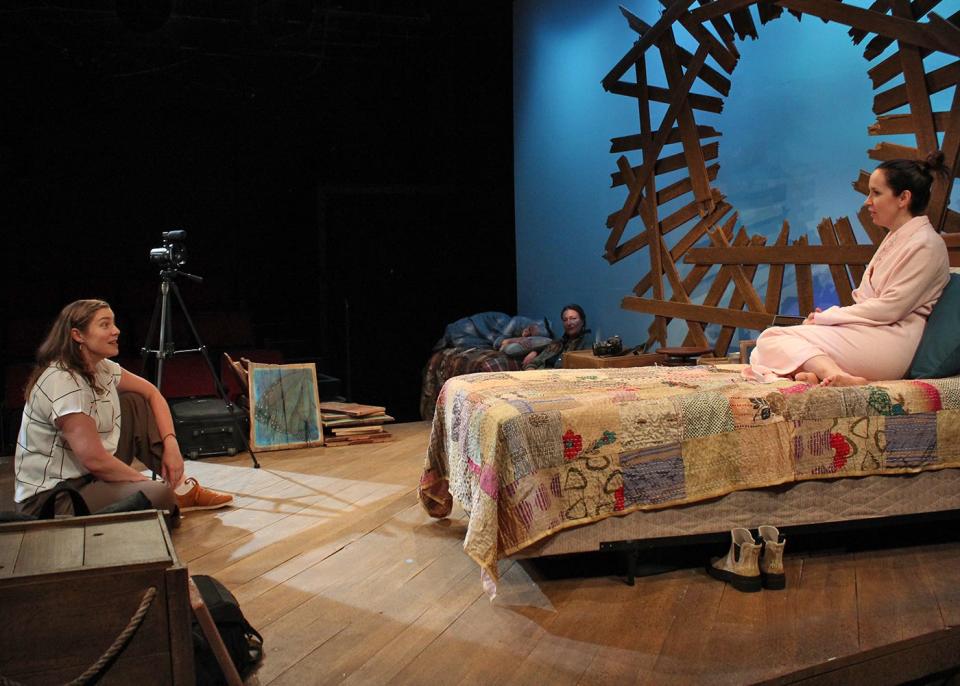'Alabaster' makes art from women’s scars and talking goats at Williamston Theatre
When artistic director Tony Caselli first saw “Alabaster” at a National New Play Network Festival, he knew he had to bring it to Williamston Theatre.
The two-hour show opens in previews on May 18, with the official opening night on May 26. It runs through June 18, with performances Thursdays through Sundays.
Alice, played by Kristina Riegle, is a photographer who is taking pictures of women with scars. Once a celebrity photographer, she is now showcasing the resilience of women, in part because of events in her own life.

Her project brings her contact with June, played by Katherine Banks. June is an undiscovered folk artist living in seclusion in a small farm in North Alabama after a tornado destroyed her life. The play becomes an intimate exploration of love, grief, longing and the purpose of art.
The show, in turns comedic and heart-wrenching, is what Caselli calls his favorite type of play — one that makes you laugh, cry and want to reach out to people you care about.
“The story itself is just beautiful and heartbreaking about people surviving life after tragedies happen and then having the courage and the strength to move on and keep living and take the next steps in their lives,” Caselli said. “It really is about women who are stuck after things have happened to them.”
It’s also a play filled with theatrical magic, in no small part because there are talking goats the director says the audience will quickly come to care about. The goats are played by Hallie Bee Bard and Gloria Vivalda.
“The other thing that was so unique and fun about it is that while we say it’s a play about four women who are stuck, two of the women are goats,” Caselli said. “It’s not all that often you get talking goats on stage that you just fall in love with.”
Bib is the aging mother goat who is an omnipresent force on the farm while Weezy is the younger goat who serves as the farm’s caregiver. Weezy guides the audience through the evening and acts as the voice of truth even while struggling with her own issues.
Caselli described the cast as able to hit all the right emotional notes the show requires.
“I truly hope everyone in Michigan comes to see this because Audrey is so great and fun,” Caselli said of the playwright. “And this cast is just rocking it. I can’t wait for people to see this thing.”
He was so impressed with Cefaly’s work that the theater will be presenting another of her works next season — a two-hander called “Maytag Virgin,” which will feature Williamston co-founders and real-life spouses John Lepard and Emily Sutton-Smith.
“Alabaster” was scheduled for Williamston pre-pandemic, but the changed world puts the show’s themes in even greater focus.

“I don’t think there’s ever a bad time to tell a story about perseverance and love,” Caselli said. “But particularly right now, the idea of moving forward after tragedy, after trauma, how you pick up when your life gets blown up, how you put the pieces back together ... you have to patchwork and quilt life back together and have the strength to do that and not just give up and cower in a corner.”
Monika Essen, who has designed sets for theaters and opera houses around the state, is making her debut at Williamston as scenic designer. Caselli said she has taken on the challenge of creating a farm’s interior and exterior on their very small space.
“The way they’ve approached the color palette and the layout of the space is fun,” Caselli said. “We’re using every inch of the stage and playing space in our theater. There’s a lot of projections happening. Our projections designer, Jeromy Hopgood, and the lighting designer, Shannon Schweizer, are working together to create some beautiful, magical moments in the space.”
The play, as the talking goats give away, does not inhabit the realm of realism and Caselli said that has let them create a very stylized aesthetic with props (Michelle Raymond), set dressing (Raymond) and even the costumes (Krista Brown). The set, he said, is a beautiful piece of art that reflects the themes and mood of the play while still capturing the essence of a farm in Alabaster, Alabama.
Other members of the creative team include Alexis Black as the intimacy and fight choreographer, Kat Poon creating specialty makeup and Rebecca MacCreery as stage manager.
This article originally appeared on Lansing State Journal: Alabaster at Williamston Theatre delves into scarred women, resilience

